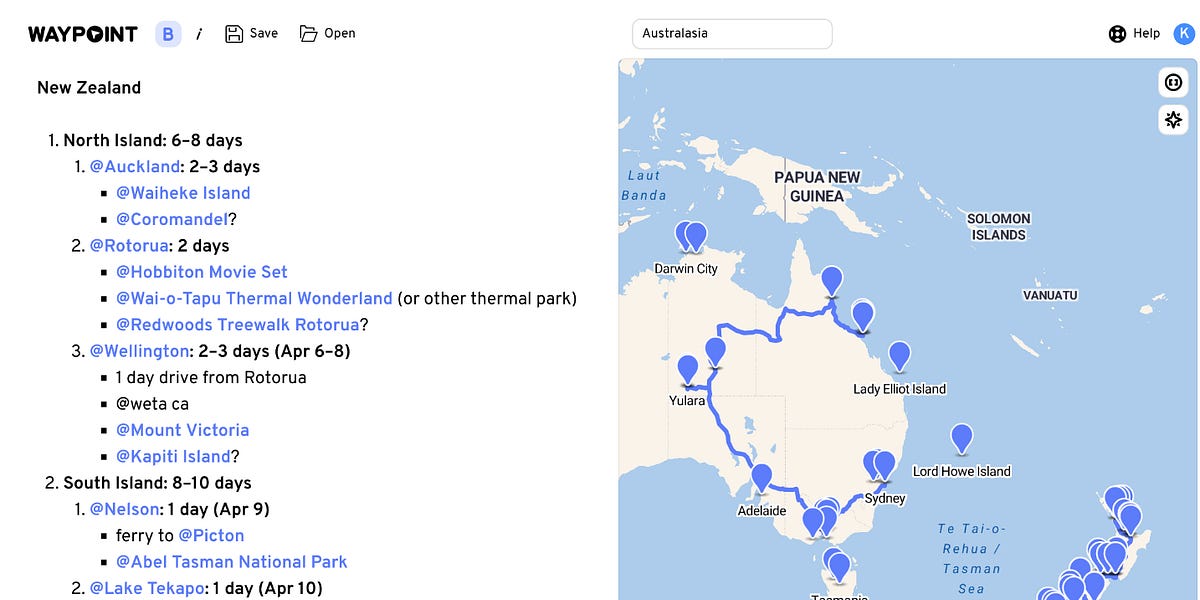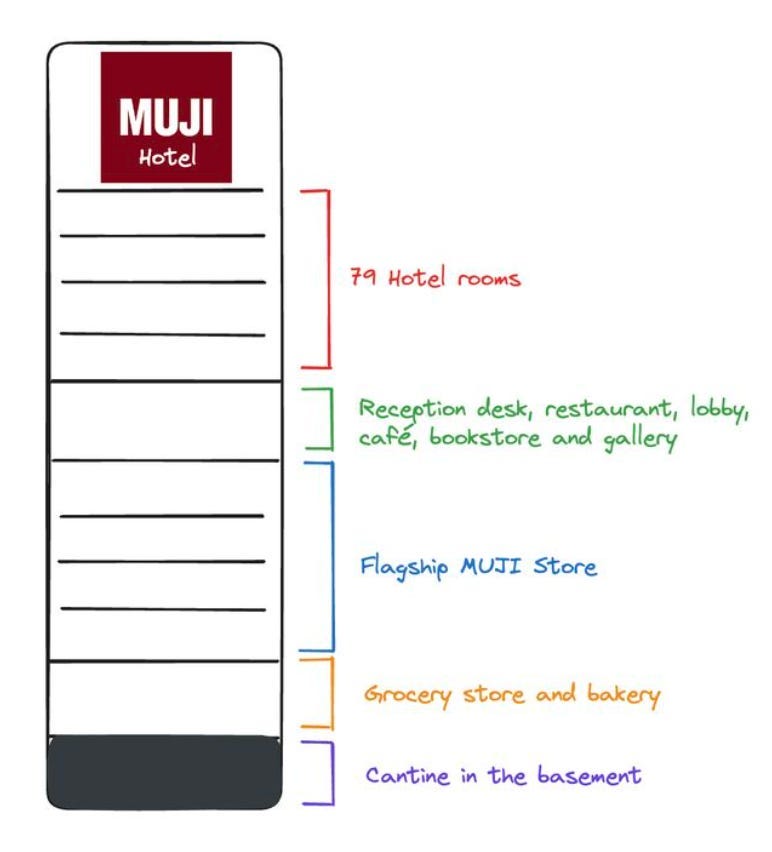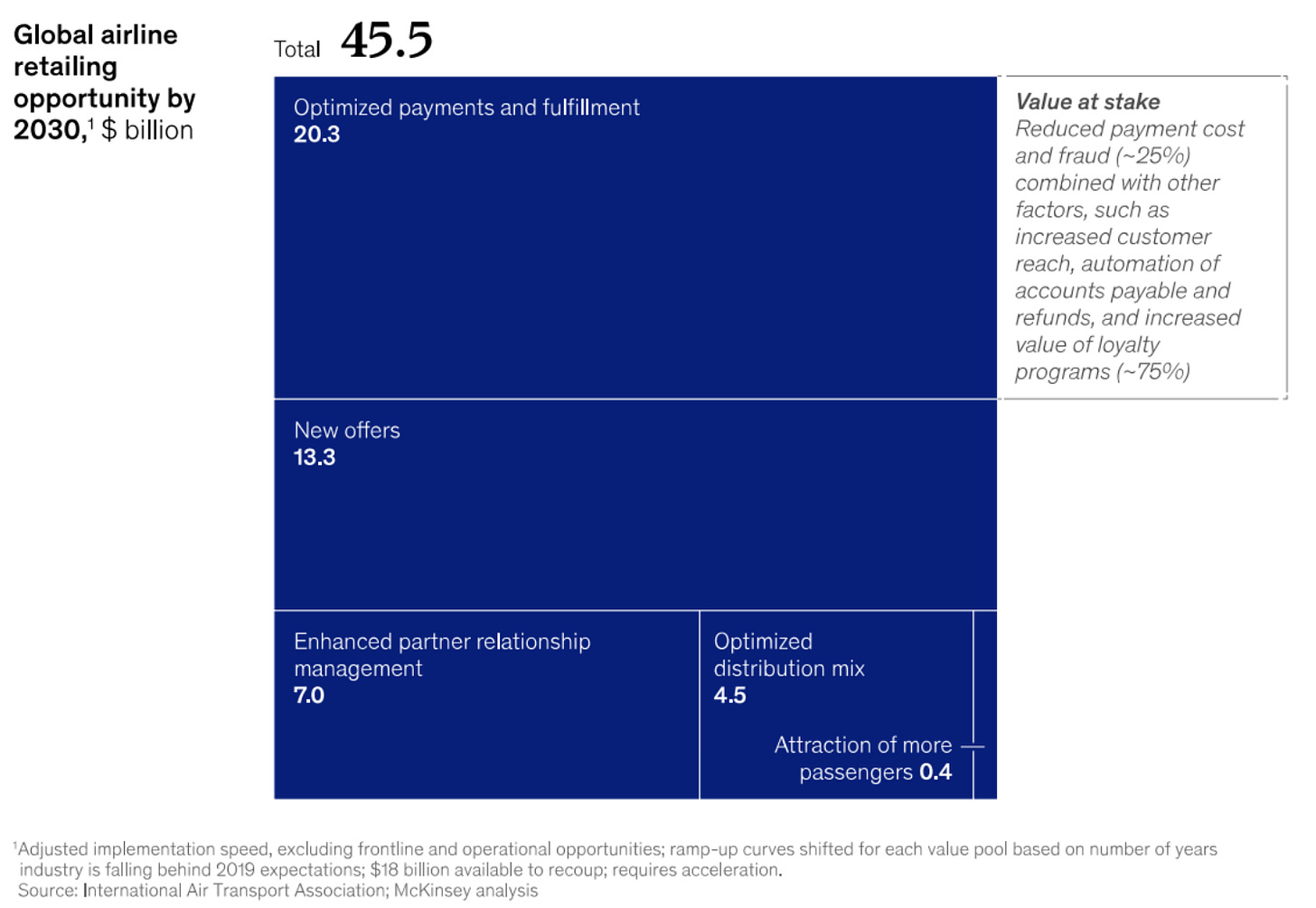“The true journey of discovery lies not in seeking new landscapes but in having new eyes.”
——Marcel Proust
because Propelik Sponsor this newsletter
It’s time to create a 2025 marketing plan. Find out where you need to focus Propellic Performance Booking Assessment. Get a complete report with marketing recommendations based on your unique situation – you don’t even need to provide contact information. Click here Make an assessment.
The most clicked link is the first tie in Travel Tech Essentialist #156: What is a Travel Brand? real whisper(association) and intuitive examples of how to use scarcity to your advantage (association)
one Leaked 36-page document YouTube’s biggest influencer Jimmy Donaldson, aka MrBeast, reveals the success principles of his empire. Some insights:
-
Simple and clear goals. The first priority is always to make the best YouTube video possible.
-
A culture that breaks the rules and prioritizes creativity over traditional media norms in non-Hollywood ways.
-
Employees are judged on results, not time. Productivity is more important than hours worked.
-
Keep iterating. From camera angles to storylines, everything should be constantly improving.
-
Flat organizational structures encourage growth and help employees view their roles as long-term careers.
-
Creativity, not just spending, drives results.
Caravelo co-founder and CPTO Jose Luis Vilar used ChatGPT to adapt MrBeast’s strategy to the airline industry. Let’s take a look at what “MrBeast’s aviation manual” Might look like that.
Peter Fabor uses Booking.com in a unique way to discover potential hotel investments in Portugal. Inspired by David Kijlstra’s advice, he targets independent hotels no Officially for sale, but fit a specific profile. He created this method”David’s Triangle“:
-
Overall rating is low – showing room for improvement.
-
GREAT LOCATION – A top-notch location that can’t be beat.
-
Poor value for money – indicates that the management problem can be solved.
These criteria helped him identify underperforming hotels in good locations. Now, he’s making an offer to one of the hotels he can’t refuse.
Peter Fabor suggested that more companies should consider having their own branded hotels, taking Muji as an example. MUJI’s Tokyo flagship store has a hotel on top, allowing customers to experience the brand’s products first-hand. Benefits include stronger brand connections, convenient accommodation options for employees and partners, a proving ground for product design, and a B2B showroom. Read +.
Andrew Chen of a16z Share on LinkedIn Why live events are making a comeback, as demonstrated by San Francisco/Los Angeles Tech Week, which will host more than 1,100 events and attract tens of thousands of people. He highlighted some of the drivers behind the return to reality:
-
The boom in AI is primarily B2B, and events remain one of the best ways to grow your business.
-
With digital marketing channels saturated, in-person events offer an authentic and cost-effective way to attract new customers.
-
Events provide direct access to highly qualified contacts, building the trust and relationships that are critical to major deals such as venture capital and large partnerships.
-
A strong desire for face-to-face interaction after lockdown
Campaigns aren’t necessarily scalable, but when it comes to quality rather than quantity of contacts and relationships, it’s hard to beat.
During a six-month travel sabbatical, Jack Lazaroff became frustrated with existing planning tools. So, in true tech fashion, he built his own: Waypoint. This is a local-first app, not because it helps you live like a local, but because it stores everything on your device, allowing you to plan your trip completely offline.
Over the course of several months, Jake created Waypoint using Svelte and CRDT to solve a core pain point: making it easy to take notes, map destinations, and visualize routes without the need for the Internet. Just enter your itinerary and watch it appear on the map in real time. If you want to rearrange your plans, the app updates instantly, making it a great offline tool for travelers. Read more.
Accenture surveyed more than 8,000 travelers and 300 C-suite industry executives around the world, supplemented these surveys with a crowdsourcing campaign involving 200 travelers from four countries and analyzed their perspectives. Artificial intelligence-based cluster analysis. this full report Based on insights gathered from research. in short:
-
The travel industry has a $28 billion opportunity to use generative AI to improve customer experience.
-
Travelers find the current travel planning process complex and frustrating, and they want a more personalized and efficient experience.
-
Generative AI can solve these pain points by providing personalized recommendations, automating tasks, and enabling natural language interactions.
-
Travel companies are already experimenting with generative AI, but they need to overcome challenges such as data preparation and workforce training to scale these initiatives.
Thomas Reiner envisions that in the future, ChatGPT’s advanced voice mode can reshape travel booking, possibly disrupting online travel agencies by providing customized, voice-driven travel recommendations. Some market segments may initially resist AI-based bookings, but Reina believes leisure travelers planning standard trips will quickly adopt voice AI because of its convenience.
Reiner outlined the key challenges facing AI in travel booking, including inventory access, data accuracy, service complexity, visual discovery, privacy issues and latency issues. He explores three scenarios: (1) OpenAI dominates, relegating OTAs to inventory management; (2) Brand loyalty insulates OTAs from AI interference; (3) OTAs leverage their proprietary data to build superior artificial intelligence Intelligent agent. Each scenario affects industry players differently, and Google is likely to fail in most cases. Airbnb is a wild card because of its unique inventory. Read +.
This isn’t the first (nor the last) time the death of OTAs has been announced. as Douglas Quimby pointed outTechnologies as diverse as metasearch, Google, blockchain, and Web3 were all predicted to be the end of OTAs, yet they have been adapting and thriving, suggesting caution in predicting their decline due to AI.
McKinsey Airline retail opportunities The report highlights how modern retail technology will create up to $45 billion in value for airlines by 2030. The consumer-facing industry has benefited from technologies such as dynamic pricing and bundled offers, but airlines have been slow to adapt due to outdated technology, siled structures and services. Focus on short-term returns.
To catch up, airlines must adopt a retail-centric approach and employ integrated data-driven technology. This includes real-time pricing, omni-channel distribution (via websites, travel agencies and corporate travel management companies), ticketless next-generation order management (in the future airlines should be completely ticketless, without using passenger name records or electronic miscellaneous files), and updated payment systems (More payment types and more payment methods). McKinsey recommends a phased transformation, starting with quick wins like diagnostics and personalized upsells to drive early revenue and fund further innovation.
Embracing modern retail not only enhances the customer experience, it can also significantly improve airline revenue and EBITDA.
An “About Us” slide from their promotional material: Our team has a century of combined experience. When we speak, the education profession listens.
(Adapted from a tweet from Morganhauser)
I’m excited to launch a new feature for Travel Tech Essentialist: deep dives into outstanding and innovative travel companies. Scheduled only six times a year, these surveys provide thoughtful analysis of the companies driving meaningful change in the travel industry.
The first is DHARMA, a company I have been following since 2020. in this workI explore how DHARMA is changing the industry by focusing on purpose-driven travel experiences that connect travelers with their passions.
For more information on how I select these companies and the thinking behind my in-depth research, check out my Deep dive philosophy.
I am opening up newsletter sponsorship opportunities for 2025. If you are interested in reaching a focused audience of travel technology professionals, please fill out this form. These attractions often sell out months in advance, so I recommend acting quickly if you’re interested.
this Tourism Technology Essentials Recruitment Committee There are great companies hiring 1215 jobs. Please complete this if you would like to have your vacancy featured on the Board and in this newsletter 1 minute quick form.
If you’re a startup looking to raise a round of funding (from pre-seed to Series D), I can help (for free). Tourism Investor Network is a private platform where I recommend innovative travel startups to investors and innovators. If you are interested, please start from fill in this form.
If you like Travel Tech Essentialist, please consider sharing it with your friends or colleagues. If you haven’t subscribed yet, you can do so here:
As always, thank you for trusting my inbox.
Mauricio Prieto











